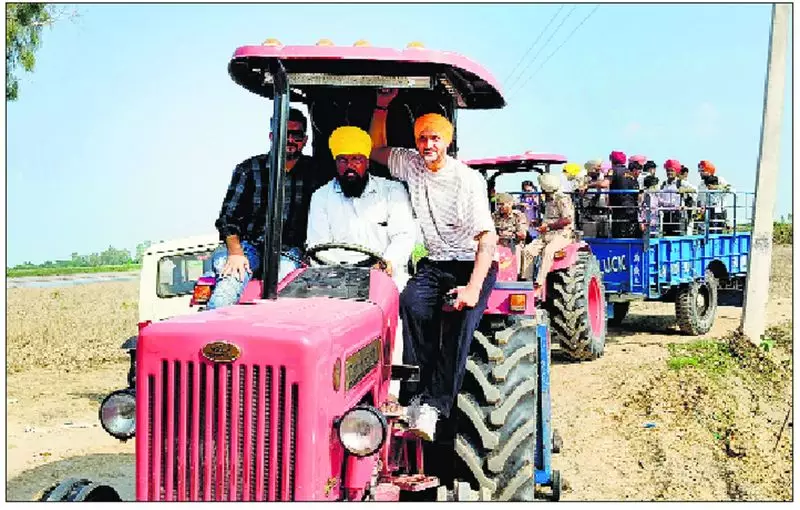
In the wake of devastating floods that submerged several villages in Jalandhar district, a progressive farmer has emerged as an unexpected messiah for affected residents. Gurmeet Singh Khaira, known for his agricultural innovations, has transformed into a relief organizer, providing crucial assistance to those grappling with the aftermath of nature's fury.
From Farming to Flood Relief
Gurmeet Singh Khaira, who typically focuses on implementing modern farming techniques at his Khaira Farms, quickly shifted gears when floodwaters began inundating nearby villages. The situation turned critical when the Sutlej Yamuna Link (SYL) canal overflowed, submerging multiple villages under several feet of water and leaving residents stranded without basic necessities.
The flooding affected numerous areas including Shahkot, Mehatpur, and Bhoot, with water levels reaching alarming heights that made normal life impossible. Houses were submerged, agricultural fields destroyed, and essential supplies cut off from the affected population.
Organized Relief Efforts
Recognizing the urgency of the situation, Khaira immediately mobilized resources and began organizing relief operations. He arranged for boats to rescue stranded residents and transport them to safer locations. His efforts proved particularly crucial for elderly residents and children who were most vulnerable to the rising waters.
Beyond rescue operations, Khaira focused on providing essential supplies to those affected. He distributed food packets, drinking water, medicines, and other necessary items to families who had lost everything in the floods. His systematic approach to relief work ensured that help reached even the most remote affected areas.
Community Response and Impact
The local community has responded with overwhelming gratitude to Khaira's initiatives. Residents who benefited from his assistance describe him as a guardian angel during their most desperate hours. Many note that his background in agriculture gave him unique insight into the region's geography, enabling more effective rescue and relief coordination.
Khaira's efforts have highlighted the importance of community-led disaster response, especially in situations where official relief may take time to reach all affected areas. His work demonstrates how local knowledge and resources can be leveraged effectively during emergencies.
The flooding has caused significant damage to infrastructure and agriculture in the region, with many farmers losing their standing crops. Khaira's understanding of agricultural challenges has made him particularly sensitive to the needs of farming communities affected by the disaster.
As waters gradually recede and the recovery process begins, the example set by this progressive farmer continues to inspire others in the community. His transformation from agricultural innovator to disaster relief organizer shows how individuals can make substantial differences during times of crisis.





